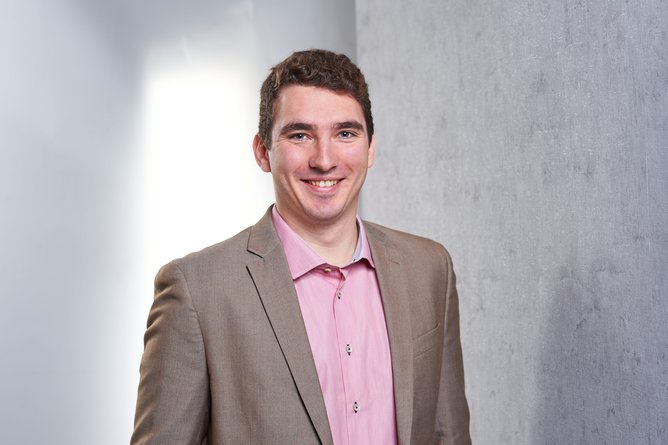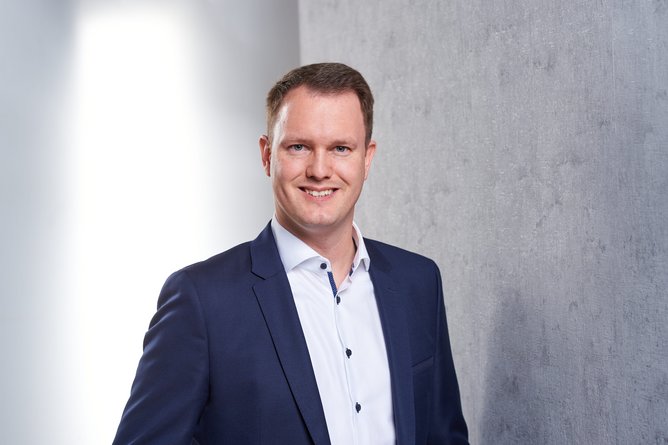How GMVK Procurement Group drives digital transformation

GMVK is a renowned Germany-based digital procurement company. It was founded in 2004 by Ulrich Rehrmann in Düsseldorf. The company was established to support businesses facing "the paradigm shift within communications", namely the shift from analogue to digital media, "by optimising internal processes and company communications".
Originally focused on the sales and distribution side, GMVK has shifted to procurement. It shut down its sales and distribution division in 2012 when Thomas Mademann joined GMVK as managing partner. The company later developed the BI-software 4EBIT-Suite following the establishment of a joint venture with Detect Value.
The joint venture has now become a subsidiary of GMVK, with 95% of 4EBIT GmbH's shares being owned by GMVK and 5% by Detect Value, which remains a close cooperation partner of GMVK today. Together, GMVK Procurement Group and 4EBIT now provide procurement expertise, combined with modern BI-solutions, to help optimise the procurement of medium-sized businesses with respect to long-term economic and ecological viability.

How GMVK helps companies drive digital transformation
Fast forward to 2022, data scientist Tobias Löwenthal joined Ulrich Rehrmann and Thomas Mademann as a Managing Partner. For over ten years prior to joining the company, Löwenthal worked as a business intelligence consultant for different companies.
"GMVK is a consultancy company that helps their customers to drive digital transformation and reduce costs per procured unit of indirect," Löwenthal says. "What that means is the company helps their customers transform their procurement department, and in the transformation process, help reduce the cost for any indirect that the company spends money on.
"Indirect is everything that doesn't necessarily go into the product but takes up a huge percentage of what a procurement department has to deal with on a daily basis. For example a car company needs aluminium as a direct material because it's needed in the product. Meanwhile, toilet paper or printing paper are examples of indirects.”
According to Löwenthal, 4EBIT plays a huge role in the procurement process. He said the wing was established in 2020 after GMVK and its consultants realised that using commercially available software was "not really the most efficient way of analysing all the data necessary for the clients' procurement optimisation".
"Basically, they were looking for a product that would help them increase efficiency," he says, adding that the establishment of 4EBIT helped them become more transparent to their customers.
"A lot of people are not dependent on printed reports anymore, which was the way ten years ago," Löwenthal says. "Some companies have Excel files in which they report stuff, but this is also not up to date anymore. There is software that can help automate reports, software that help uncover and identify hidden potentials, as well as risks."
"The software helps manage those risks, manage those potentials, and simply automates or does it in one concentrated entity as a service to companies. So there is a real big transformation going on with digitalisation. Companies now can focus on their core value and strategic tasks without being distracted. They only need to pay attention to all the things that they necessarily have to do."

Challenges in digital transformation
To achieve digital transformation sustainably, there are other aspects that come into play ecologically and socially.
“We need to change as humanity in order to be able to live on this planet for the next few years. And that has multiple perspectives,” says Löwenthal. "People need to change the way they approach things, which is something that they are reluctant to do.”
According to Löwenthal, the current challenges in digital transformation include the fact that it requires people "to change the way that they are doing whatever they're doing right now". In addition to reducing the effect of digital transformation on global warming being one of the challenges – in terms of the increase in energy consumption and heat production – he explains that people needed to find a way to filter the available data.
“All the information we need is available right now, today. But many don't really have the proper concepts or tools for making sense of all that information at this point of time. This is where we can utilise technology” he says. “It's not about availability of information, it's about filtering out the core insights of that huge pile of information, filtering out whatever is necessary for you at this specific point in time, and then acting upon that information.”
However, according to Löwenthal, the next actual question is how to filter all that information in the search of validation.
"How do we make sure that the information is correct? If you take a look at what is currently going on in the war in Ukraine and Russia and how Russia and Ukraine are reporting the same numbers but in different ways so that people are influenced by it – that is the whole challenge that we currently see in terms of sustainability, with greenwashing being an example."
Meanwhile, according to GMVK Head of Sustainability Felix Dalstein, the major challenge faced by companies that use GMVK's services is that they are "overwhelmed by the availability of options in this field".
"There are countless companies working and getting into the field of sustainability, in terms of carbon footprint, in terms of supply chain visibility, in terms of compliance" he says. However, "we see a clear difficulty in defining company goals as well as a systematic plan to reach those goals, especially in terms of sustainability."
"It's really hard for companies to find and figure out the proper partner that matches its sustainability vision and goals. It is not just about choosing a flashy tool or a name because another company or a friend recommended it, you have to find the appropriate tool to make sense of your data to reach your specific sustainability goals in a transparent and systematic way."
Dalstein added that GMVK helps its clients in reaching economic and sustainability transparency, combining these data to lay the foundation for sustainable company development.
“The real key piece for business resilience and visibility doesn't stop at getting the data and creating transparency,” says Dalstein. “The goal shouldn't be to stop there. It should be to use this information to improve your procurement, to improve your entire supply chain and make those processes along the supply chain more sustainable along the way so that you and all your suppliers and the end customers get a more sustainable product out at the end.”






